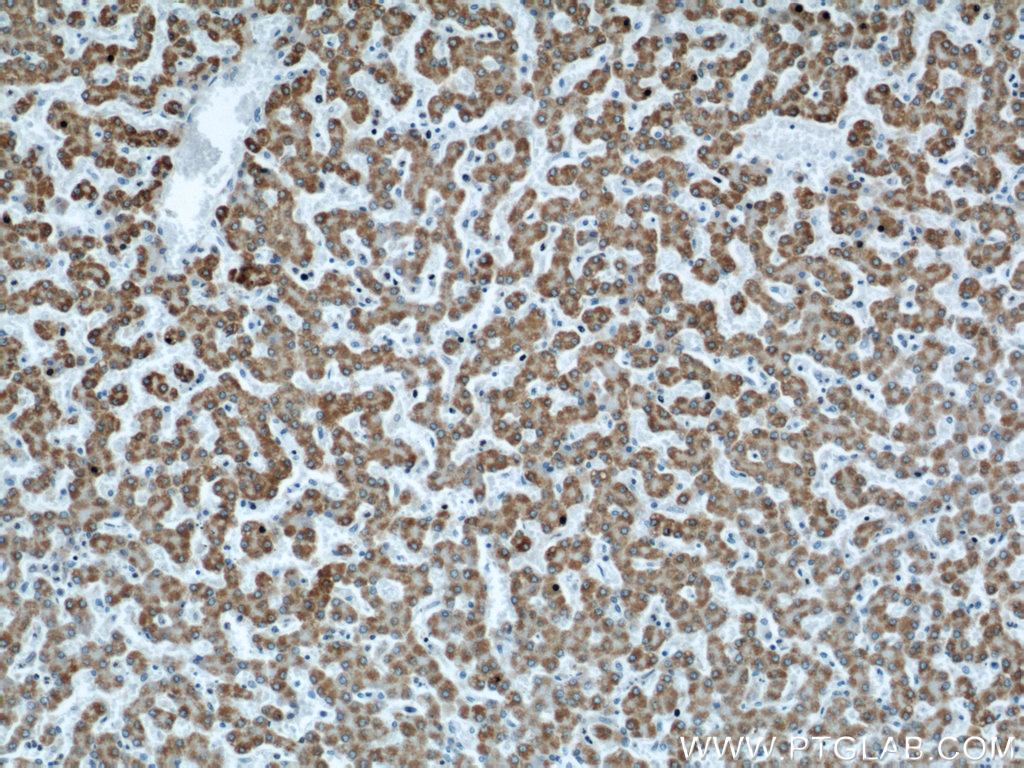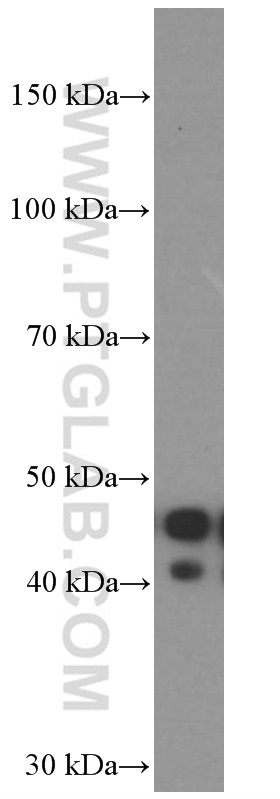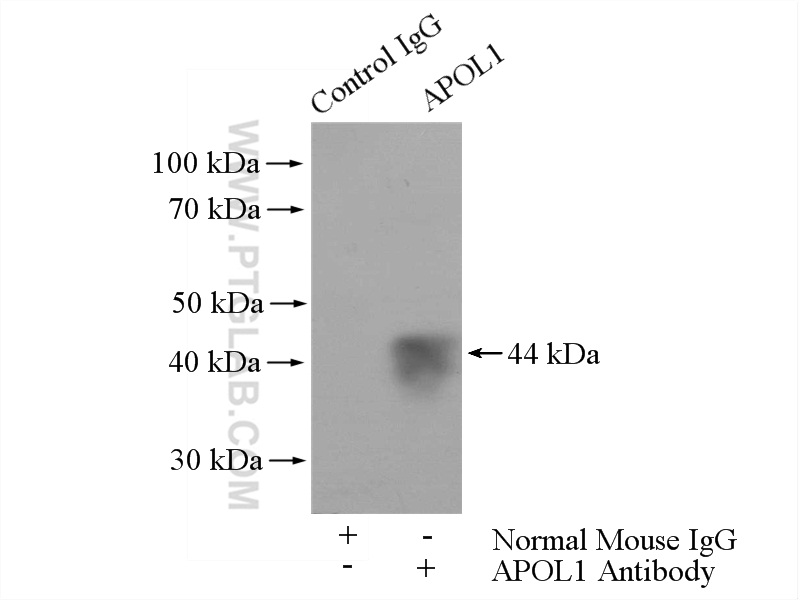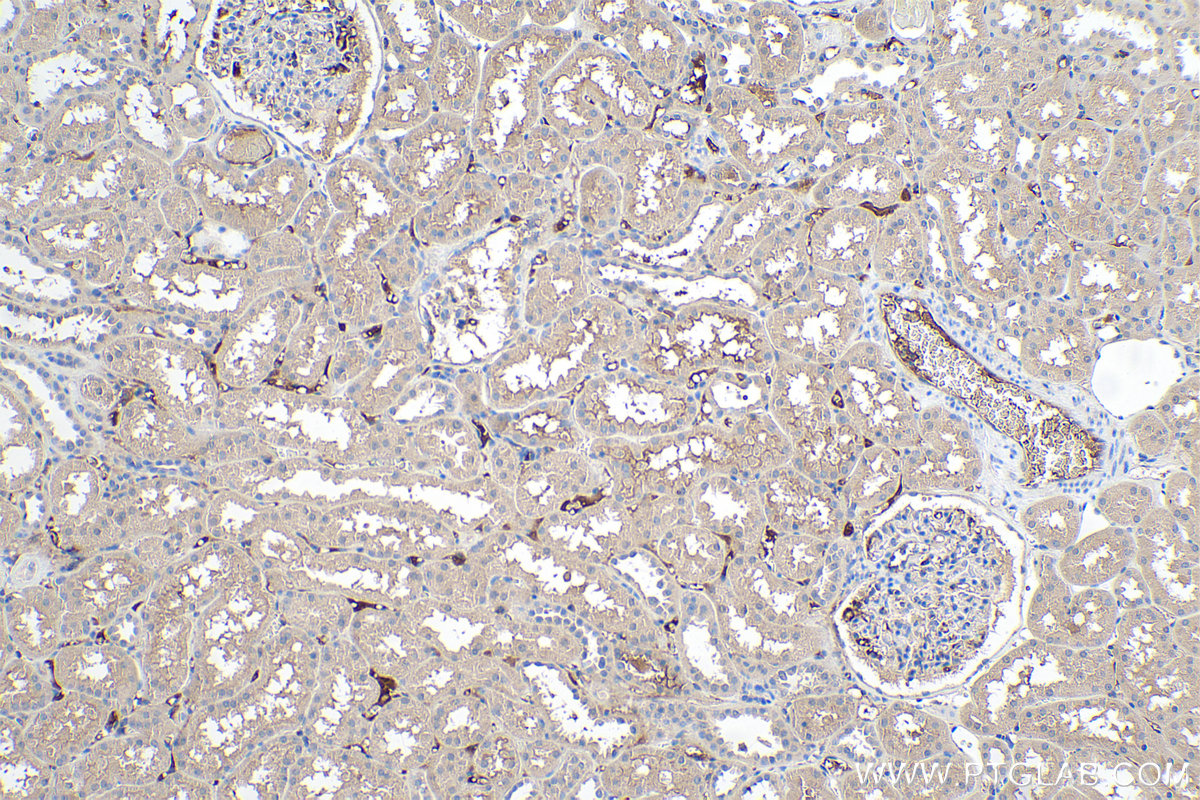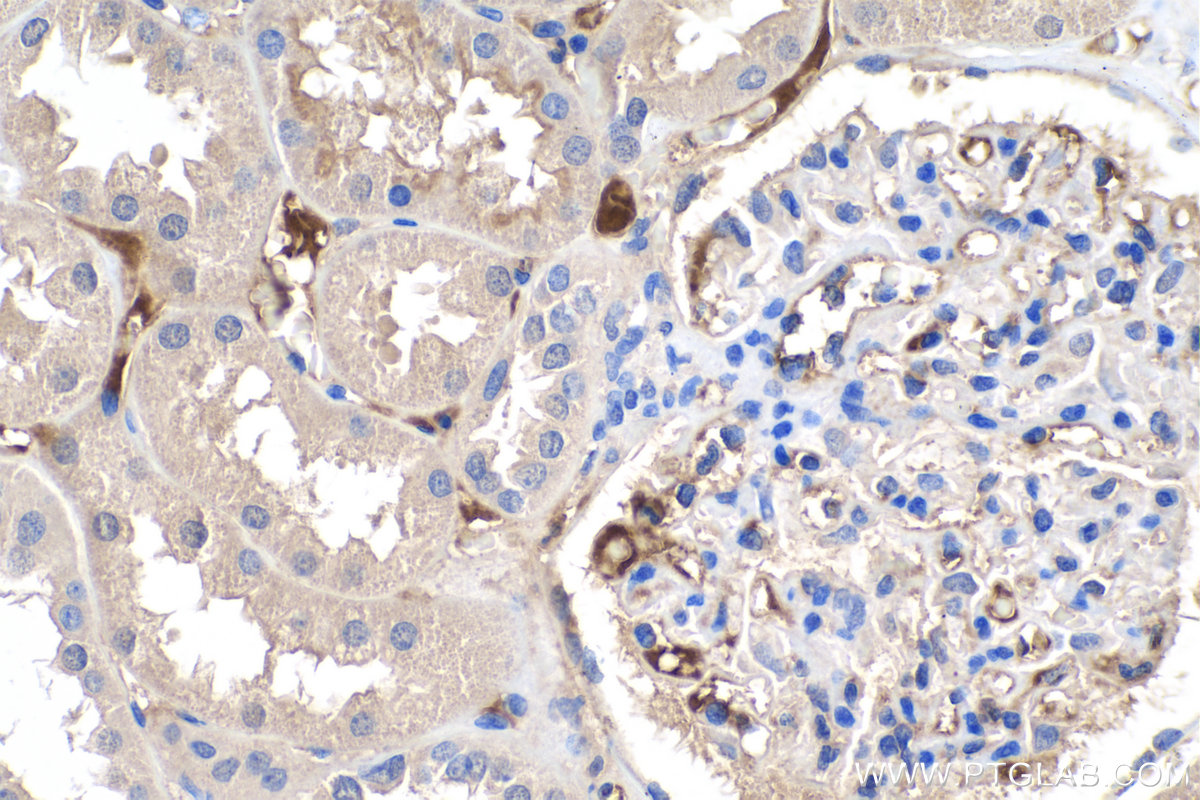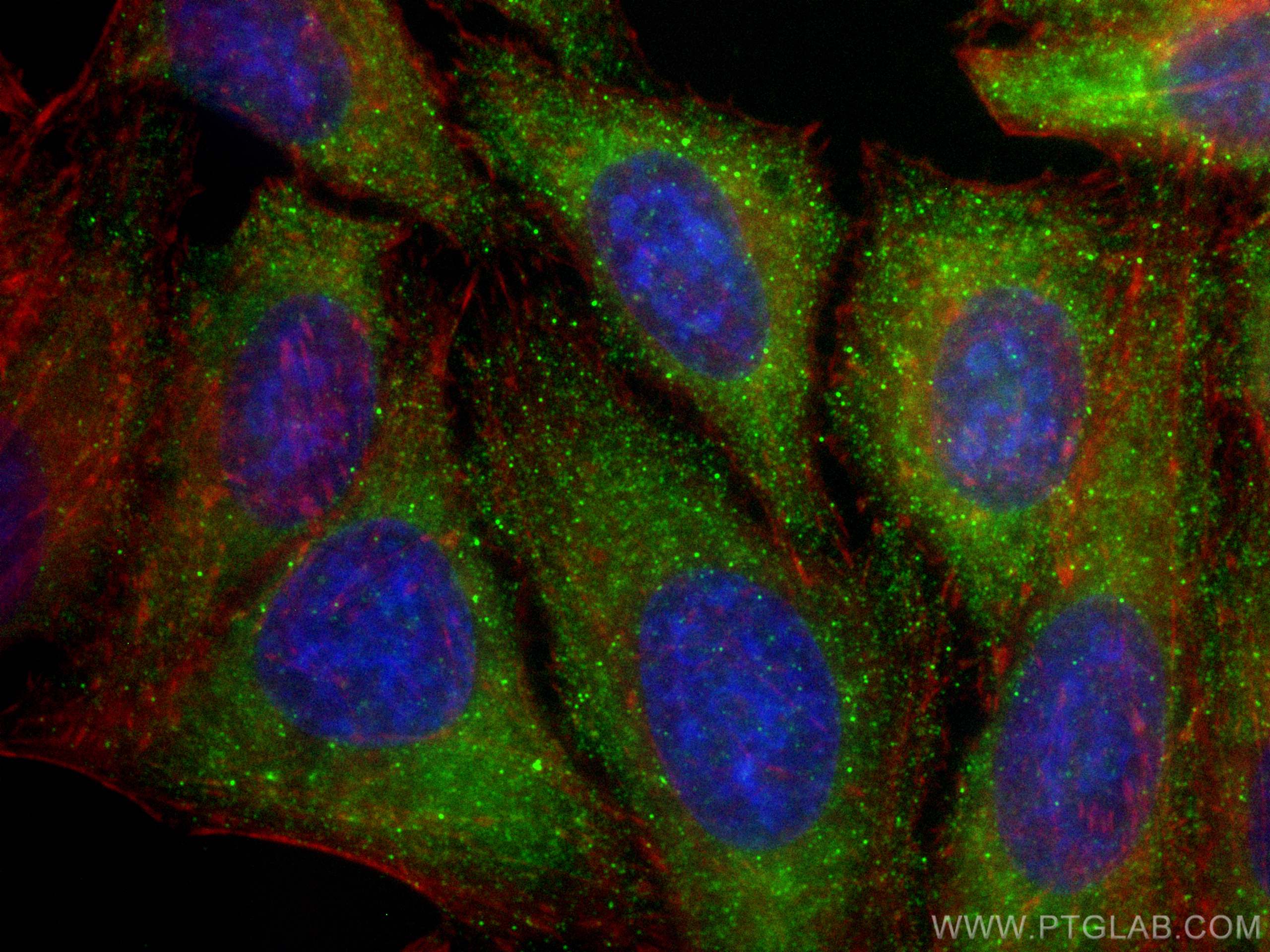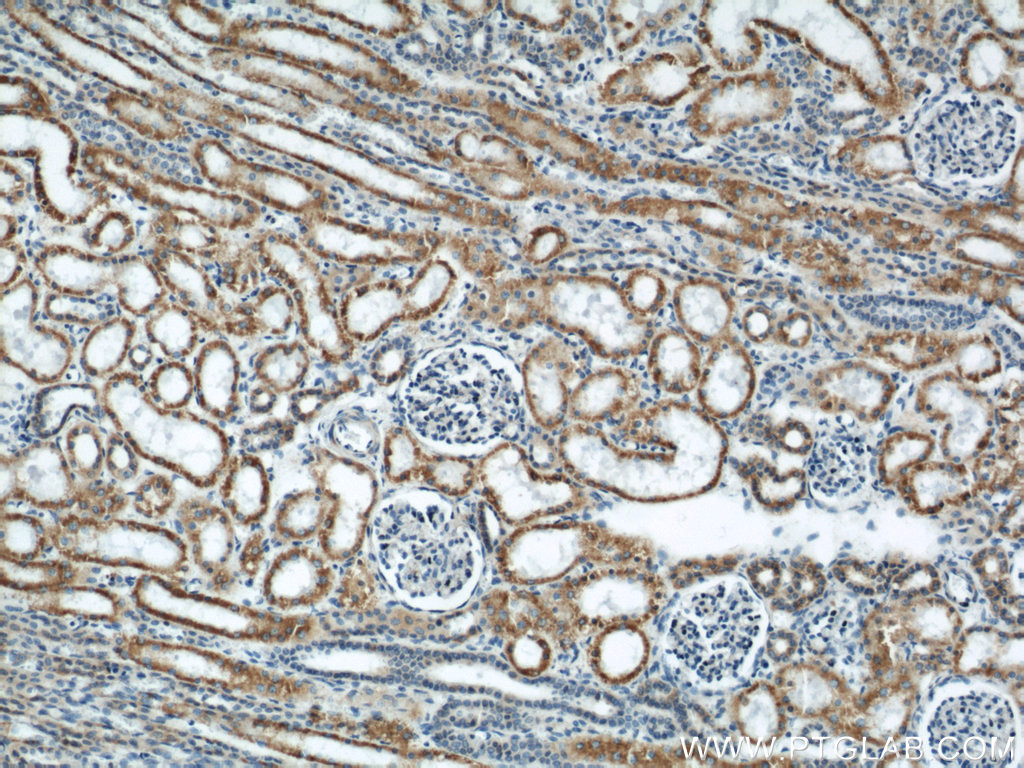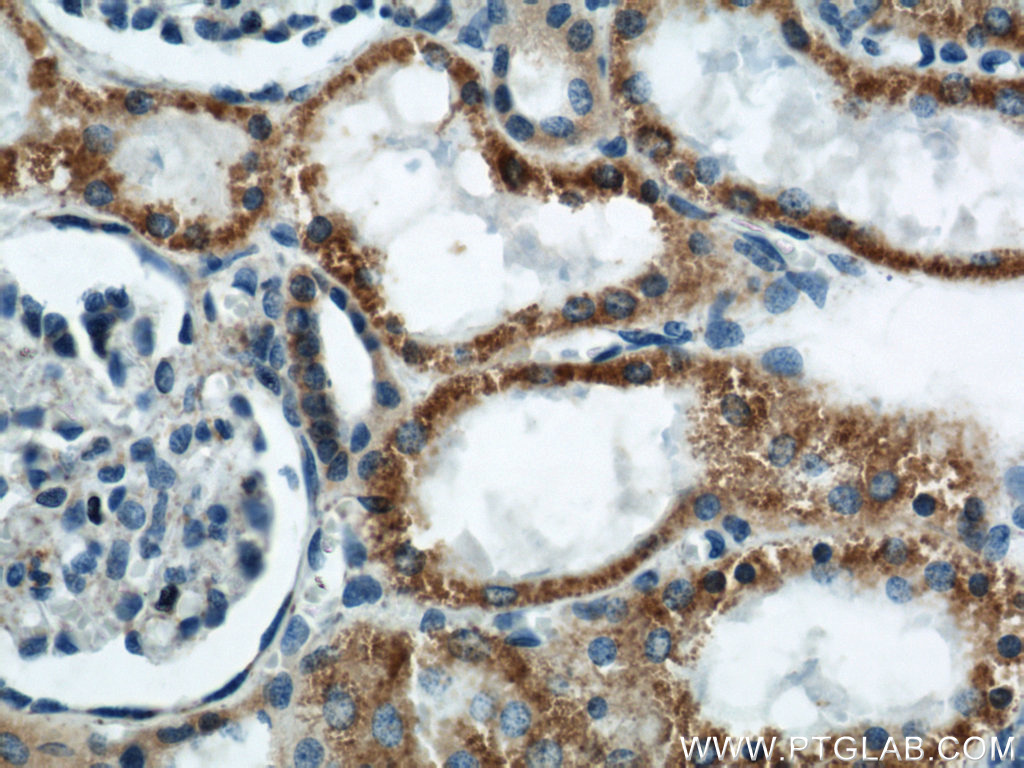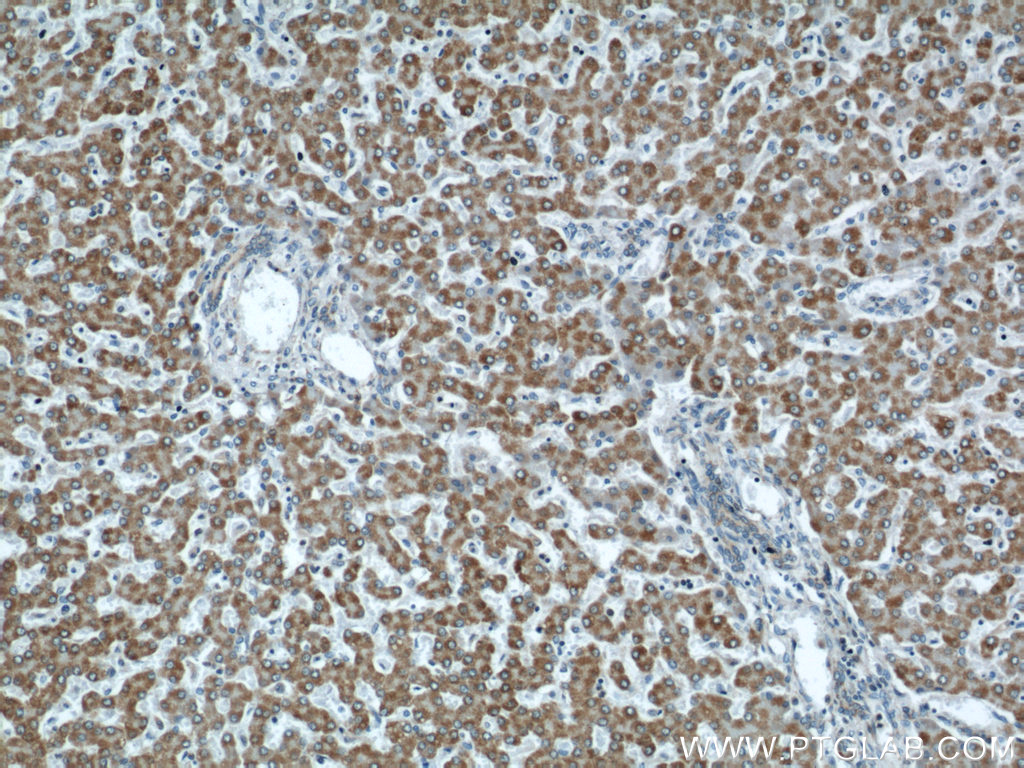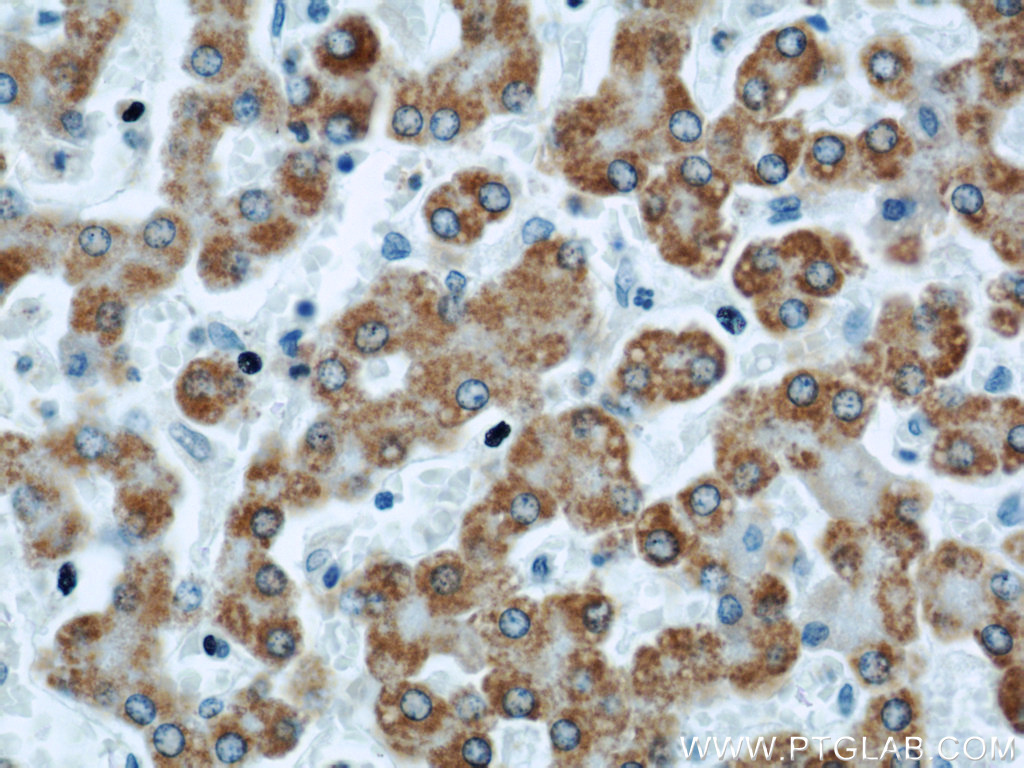验证数据展示
产品信息
66124-1-PBS targets APOL1-Specific in WB, IHC, IF/ICC, IP, ELISA applications and shows reactivity with human samples.
| 经测试应用 | WB, IHC, IF/ICC, IP, ELISA Application Description |
| 经测试反应性 | human |
| 免疫原 | APOL1-Specific fusion protein Ag2016 种属同源性预测 |
| 宿主/亚型 | Mouse / IgG2a |
| 抗体类别 | Monoclonal |
| 产品类型 | Antibody |
| 全称 | apolipoprotein L, 1 |
| 别名 | APO L, APOL, APOL I, APOL1, APOL1-Specific, Apolipoprotein L, Apolipoprotein L I, apolipoprotein L, 1, Apolipoprotein L1 |
| 计算分子量 | 44 kDa |
| 观测分子量 | 39-45 kDa |
| GenBank蛋白编号 | BC017331 |
| 基因名称 | APOL1 |
| Gene ID (NCBI) | 8542 |
| RRID | AB_2881523 |
| 偶联类型 | Unconjugated |
| 形式 | Liquid |
| 纯化方式 | Protein A purification |
| UNIPROT ID | O14791 |
| 储存缓冲液 | PBS only , pH 7.3 |
| 储存条件 | Store at -80°C. The product is shipped with ice packs. Upon receipt, store it immediately at -80°C |
背景介绍
Human apolipo-protein L1 (APOL1) is a minor component of plasma high density lipoprotein (HDL) particles, acting as an interacting protein of apolipoprotein A1 (ApoA1). The human ApoL protein family was thought to be predominantly involved in lipid transport and metabolism. APOL1 is also involved in host innate immunity against Trypanosoma parasites. Once activated, APOL1 can lyse the parasite and protect human from infection. Genetic variants in APOL1 gene, which are found in African ancestry with high frequency, associate with chronic kidney disease, like focal segmental glomerulosclerosis (FSGS), HIV-associated nephropathy (HIVAN), and hypertensive nephropathy. APOL1 share structural and functional similarities with proteins of the Bcl-2 family and may has roles in apoptosis and autophagy. It is notable that APOL1 exists only in human and a few other primate species, and mouse does not express an APOL1 orthologue. This antibody recognizes the endogenous ApoL1 of 39-45 kDa in blood lysate. This antibody is specific to APOL1.
